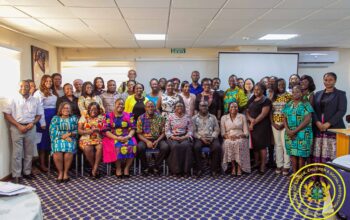It’s a clear sign of disconnect between the government’s actions and the aspirations of the people. The fact that the Inspector General of Police (IGP) was booed suggests a significant level of frustration among the residents, and it reflects deeper concerns about how their needs and desires are being addressed, or not addressed, by the authorities.
The Regional Minister’s comment about the IGP’s job offer being out of sync with the aspirations of the people hints that there may be a misalignment between the leadership’s approach to handling issues and the community’s expectations. In Bawku, where there have been ongoing security challenges and inter-ethnic tensions, the people might be looking for solutions that go beyond the typical law enforcement measures. They may be seeking more holistic or community-focused approaches—ones that don’t just address security from a top-down perspective but also consider local needs, dialogue, and peacebuilding.
Bawku residents, especially those who feel marginalized, might have been hoping for a greater emphasis on dialogue, peacebuilding, and justice rather than just a top-down offer that might not address the deeper roots of the problem.
the IGP’s offer was made without fully understanding or aligning with what the people of Bawku actually needed, it could easily lead to disillusionment and rejection.
The disconnect between government actions and community aspirations is often a key factor in how also brings into question how effective communication between officials and local communities is. If effective any intervention or offer will be. If the IGP’s proposal, or any government initiative, doesn’t align with what the community feels is needed, it can lead to frustration and a sense of alienation.
In places like Bawku, where tensions are high due to inter-ethnic conflicts and security concerns, the government might be thinking in terms of order and control, but the community could be looking for more lasting peace and inclusivity. A top-down approach that prioritizes security measures without acknowledging the community’s desire for dialogue, justice, and reconciliation might be seen as insufficient or even dismissive.
What Bawku residents are likely hoping for is more than just law enforcement; they want to see real engagement—where local leaders, community members, and authorities come together to create long-term solutions. They may also want to see recognition of their unique challenges and a shift toward peacebuilding that respects their culture and aspirations.
This could be an opportunity for government officials to rethink their strategy and engage with the people more meaningfully. Instead of just imposing measures from the top, collaborative dialogue and a community-centered approach might resonate better with residents and lead to more sustainable peace.
The Minister’s remarks are really telling—they highlight a deepening divide between what the state is offering and what the people, especially the youth, are demanding. The fact that the tensions have persisted for several years in Bawku speaks to the complexity of the situation. If residents are feeling that the government’s efforts aren’t addressing their core concerns, particularly around security and economic opportunities, it suggests that there’s a gap between state interventions and the real needs of the community.
For the youth, it’s especially significant. They’re often the ones most affected by economic hardship and lack of opportunities—especially in conflict zones where insecurity disrupts education, employment, and social stability. If they are calling for more decisive and fair security measures, that indicates a desire for action that doesn’t just focus on law enforcement, but also on justice, fairness, and opportunities for a better future.
In addition to security, the economic opportunities issue is huge. Young people in conflict zones often feel marginalized and disconnected from the broader society. If they don’t feel like the government is offering them a way to build better lives through job opportunities, education, and economic stability, they’re going to feel disillusioned and more likely to lose trust in the authorities.
Given the ongoing security challenges in Bawku, the Minister’s comments seem to underscore the importance of a broader, more inclusive approach. The youth might not be looking for quick fixes from the government—they might be asking for long-term, holistic solutions that include security, economic development, and social justice.










